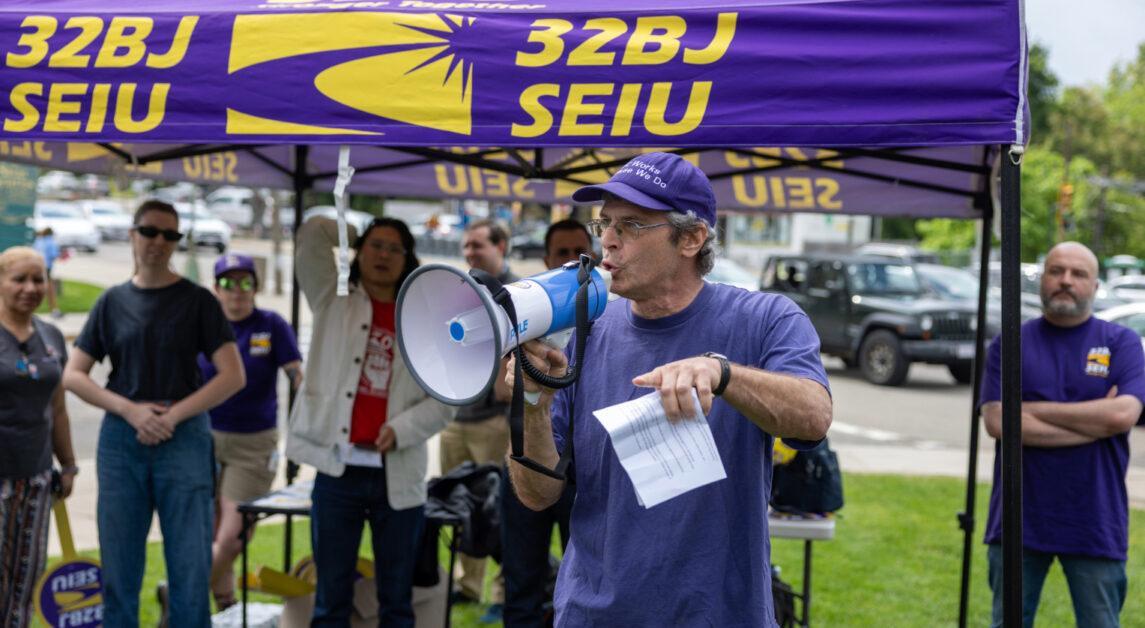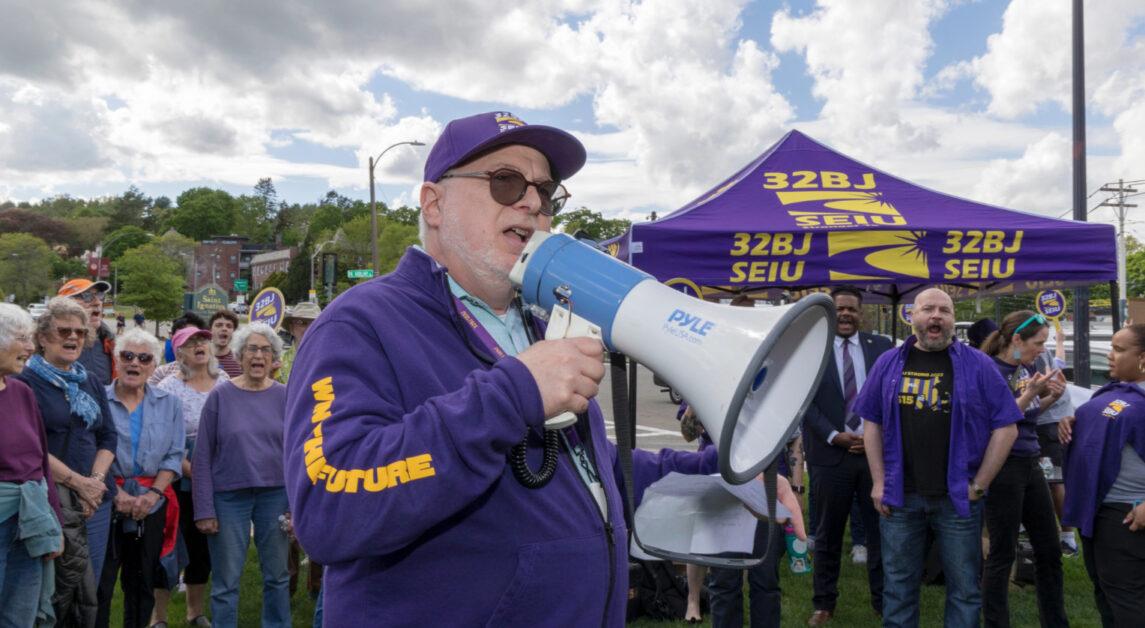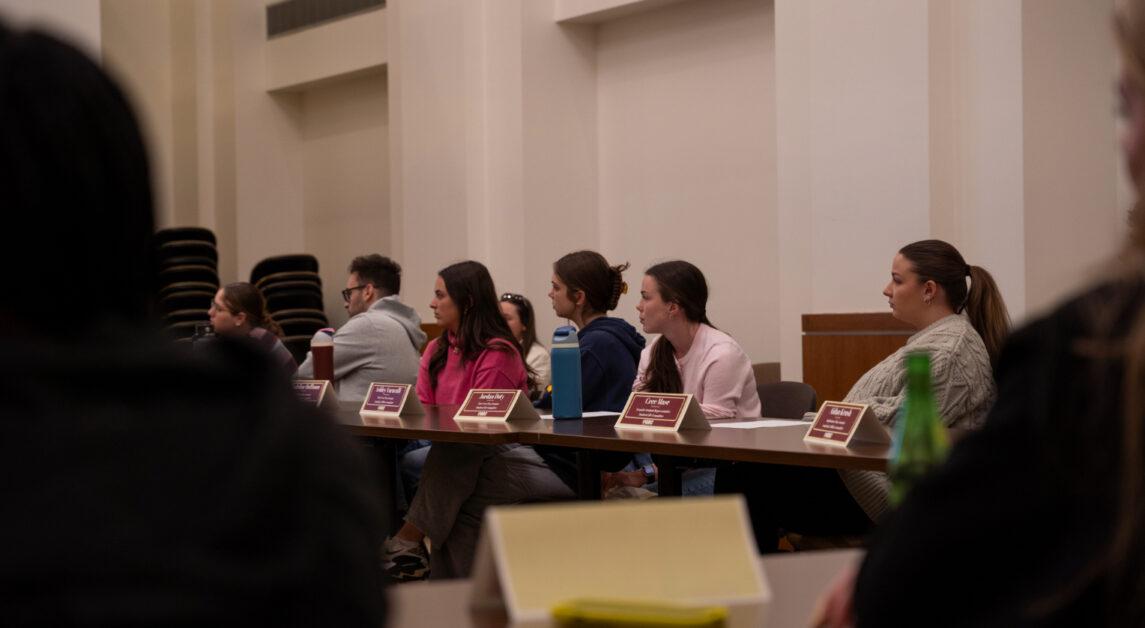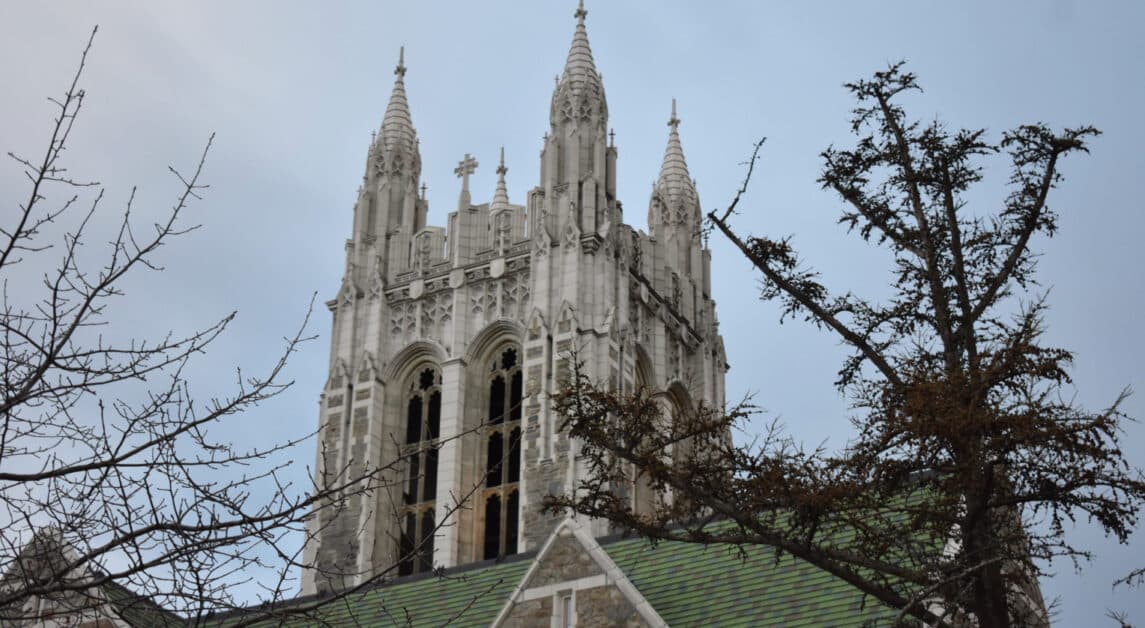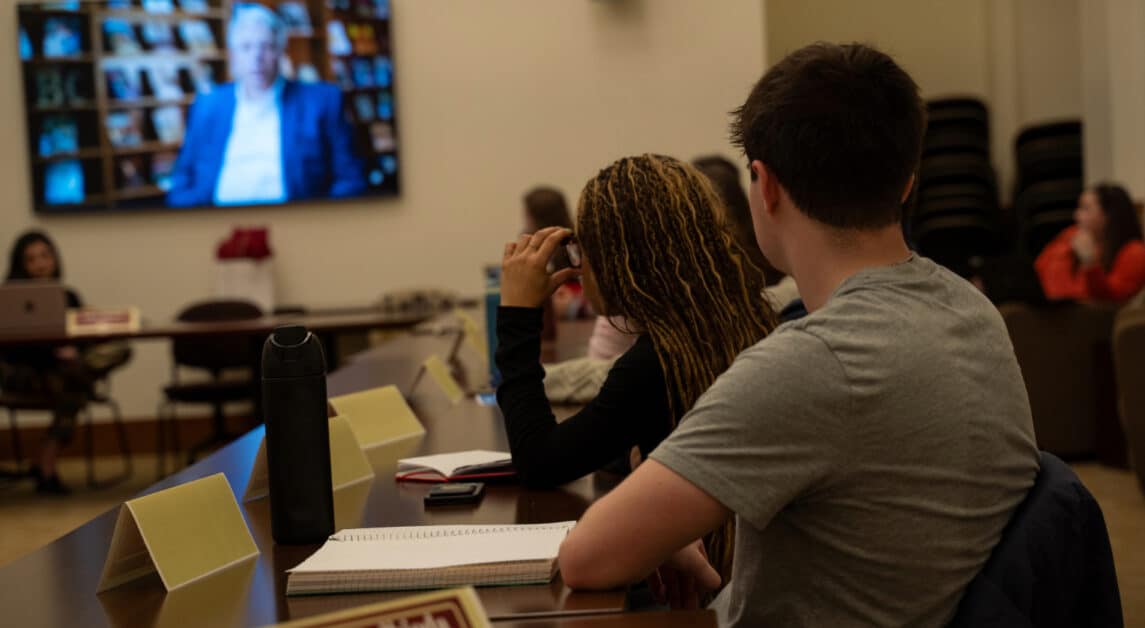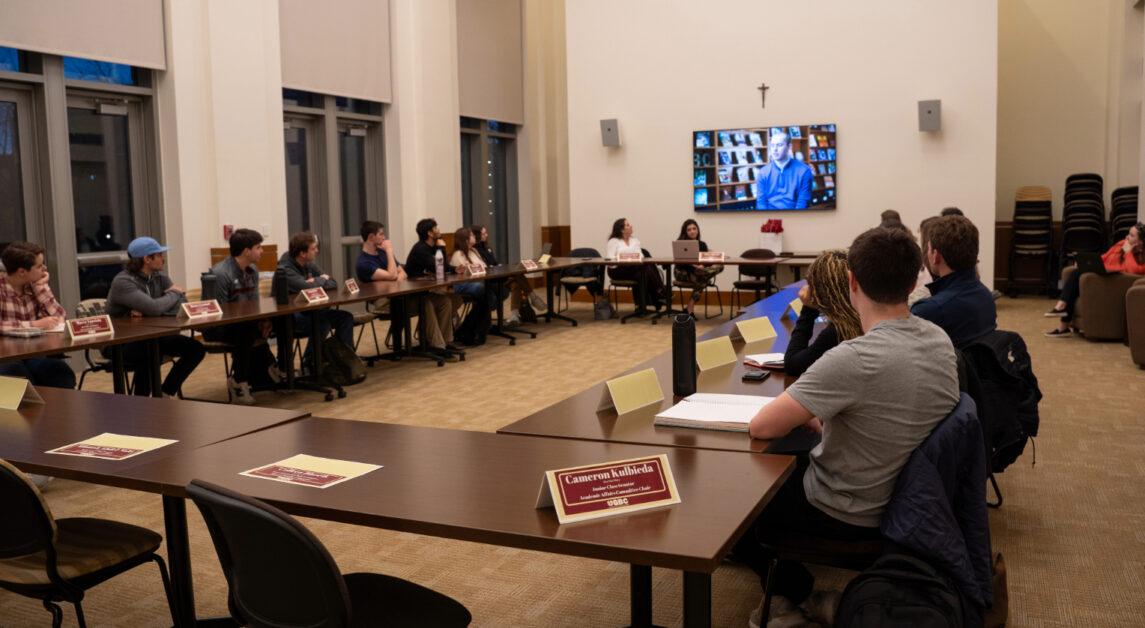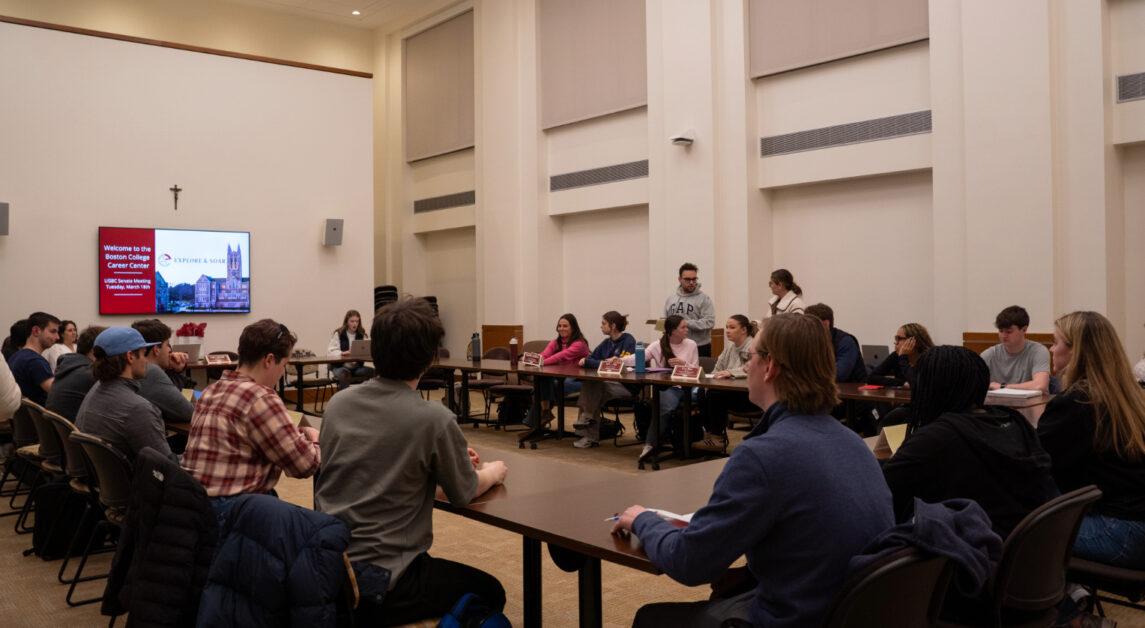Tom Rinaldi, a news reporter for ESPN and the author of The Red Bandanna: A Life, A Choice, A Legacy, gave a lecture on Tuesday evening about the heroism of Welles Crowther, BC ’99, who is credited with saving between eight to 12 lives during the terror attacks on the World Trade Center on Sept. 11, 2001.
The lecture was part of the Woods College of Advancing Studies’ Manresa Experience. The Manresa Experience encourages Woods College students to foster their professional, personal, and spiritual discernment through reading and reflection.
Rinaldi began the night by posing the question “How do you make a hero?” Peggy Noonan, author and columnist for The Wall Street Journal, first asked this question to Alison Crowther, the mother of Welles, who was present at the lecture.
The crowd applauded as Crowther stood up and acknowledged them.
“Alison … steeped in humility, humanity, and honesty, was a little bit embarrassed with the question and essentially said, ‘He kinda came hard-wired,’” Rinaldi said. “But the truth about the making of a hero was that it happened slowly. It happened with caring and community. It happened with coaches and teachers. It happened with parents and the firehouse. And it happened here, at Boston College.”
During the process of writing the book, Rinaldi recalled constantly looking at a picture of a six-year-old Crowther wearing the red bandanna. To him, the word “ready” was being screamed by the image.
“Bring it,” Rinaldi said, referring to the image. “Whatever it is: the next minute, the next adventure, the next challenge. The next time I might sneak out at night without my parent’s permission and catch some tar from Dad, I am ready. And that’s ultimately what he was [on Sept. 11]—ready.”
Rinaldi then recounted the events of Sept. 11 and Crowther’s actions immediately after the plane hit the South Tower. Numerous times he resisted the basic human instinct to survive, finding the only remaining functional staircase and going down to the Sky Lobby, where he calmly helped people down the stairs before going back up to save more people. At one point, Crowther even made it to the lobby: 75 feet away to safety.
“How long would it take you, calm, to cover 75 feet?” Rinaldi asked. “How long would it take you, with every primal instinct, to cover 75 feet? Because what’s there? What’s on the outside? The rest of your life. You’re 24 years old. You’re 75 feet away. What does Welles do? He goes the other way.”
Crowther went to the FDNY Command Post to inform the first responders of what to expect in the Sky Lobby. Together they brought more people down to safety until the tower fell.
“When Welles’s remains were recovered in March of 2002, he was surrounded by the remains of FDNY firefighters,” Rinaldi said. “Still, he did not leave.”
The reason Rinaldi wanted to speak specifically to the students was because of Crowther’s desire to quit his high-paying job at a finance firm to become a full time FDNY firefighter. In other words, he left his job to pursue his calling. When Crowther’s parents went to his apartment to clean out his belongings, they found an application to the FDNY filled out. Since then, Crowther has become one of two people to be named among FDNY ranks without having served.
Rinaldi believed that there is something beyond the curriculum and the syllabus at Boston College that forms heroes like Crowther. He encouraged the audience to see the Welles in each of them and to understand that “hero” is not such a distant term.
“Welles is the same kid who lived in the Mods,” Rinaldi said. “He’s the same guy who was finding his way during freshman year. He studied among you. He competed among you. He learned among you. He walked among you, and when he walked out of these gates, he went into the world with something more than a degree. He left with a code, with an ethos, with a mission, with an understanding that it’s not about me. It’s about what I put in the world … in the daily moment. That to me was what the bandanna is.”
Featured Image by Jake Evans / Heights Staff










